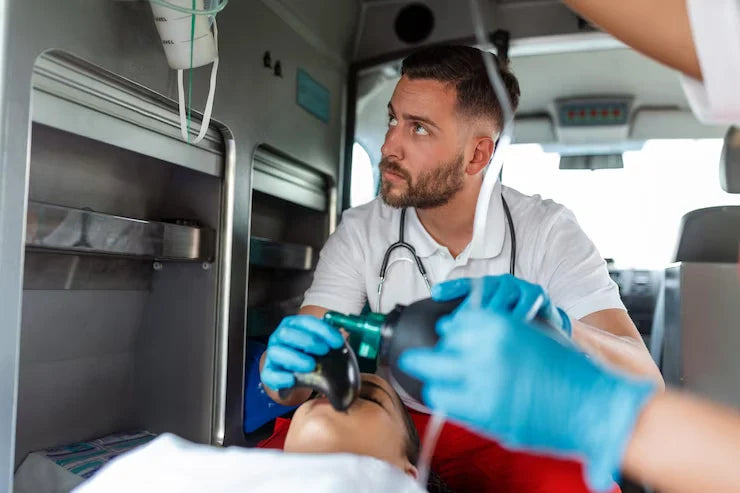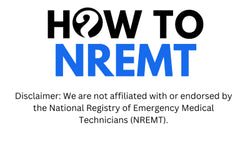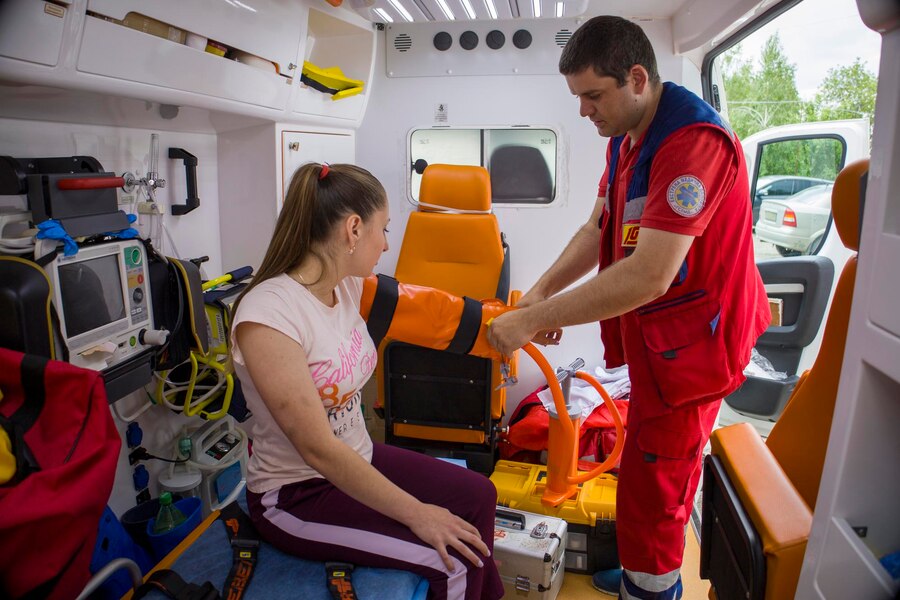Embarking on a career as an Emergency Medical Technician (EMT) in Delaware is both a noble and rewarding endeavor. With the state's diverse landscapes and communities, EMTs play a vital role in providing immediate medical care during emergencies.
Whether you're just starting your journey or looking to enhance your credentials, this guide offers a step-by-step overview of the EMT certification process in Delaware, along with insights into effective exam preparation strategies.
Step 01

Meet the Basic Eligibility Requirements
To pursue EMT certification in Delaware, candidates must satisfy specific prerequisites:
- Age: Must be at least 18 years old.
- Education: Possess a high school diploma or GED.
- CPR Certification: Hold a valid CPR certification at the Healthcare Provider level.
- Background Check: Undergo and pass a criminal background check.
- Physical and Mental Fitness: Demonstrate the physical and mental capabilities required to perform EMT duties effectively.
Ensuring you meet these criteria is the first step toward a successful EMT career in Delaware.
Step 02

Enroll in a State-Approved EMT Training Program
Delaware mandates that aspiring EMTs complete a state-approved training program. These programs are designed to equip students with the theoretical knowledge and practical skills necessary for emergency medical services.
Key components of these programs include:
- Classroom Instruction: Covering topics like anatomy, physiology, medical terminology, and emergency procedures.
- Hands-On Training: Practical sessions focusing on skills such as airway management, patient assessment, and trauma care.
- Clinical Experience: Real-world exposure through ride-alongs with ambulance services or rotations in emergency departments.
Notable institutions offering EMT training in Delaware include:
- Delaware State Fire School: Provides both traditional and life-paced EMT programs, accommodating various learning preferences.
- Delaware Technical Community College: Offers comprehensive EMS programs, including EMT and Advanced EMT courses.
Select a program that aligns with your schedule, learning style, and career goals.
Step 03

Prepare for the NREMT Cognitive Exam
Upon completing your EMT training, the next step is to pass the National Registry of Emergency Medical Technicians (NREMT) cognitive exam. This computer-based test assesses your understanding of emergency medical care principles.
As of April 2025, the exam encompasses the following domains:
- Scene Size-Up and Safety: Evaluating the environment to ensure safety for both the patient and responder.
- Primary Assessment: Initial evaluation of the patient's airway, breathing, circulation, and consciousness.
- Secondary Assessment: Comprehensive examination, including patient history and physical assessment.
- Patient Treatment and Transport: Administering appropriate care and preparing the patient for transport.
- Operations: Understanding EMS systems, documentation, and communication protocols.
To enhance your chances of success, consider utilizing exam preparation resources that offer practice tests, study guides, and tutoring support.
Step 04

Understand State-Specific Skills Requirements
While the NREMT has discontinued the psychomotor (hands-on) examination for national certification, Delaware may still require a state-administered practical skills assessment. This evaluation ensures that EMT candidates can competently perform essential emergency procedures.
It's advisable to consult with your training program or the Delaware Department of Health and Social Services to determine current requirements.
Step 05

Apply for Delaware EMT Licensure
After successfully passing the NREMT cognitive exam and any state-mandated practical assessments, you can apply for EMT licensure in Delaware.
The application process involves:
- Creating an Account: Register on the Delaware EMS Licensing Portal.
- Submitting Documentation: Provide proof of NREMT certification, CPR credentials, background check results, and training completion.
- Application Review: The Delaware Department of Health and Social Services will assess your application and notify you of the outcome.
Maintaining open communication with the licensing board and promptly addressing any additional requirements will facilitate a smooth licensure process.
National vs. Delaware EMT Certification Requirements
Understanding the distinctions between national and state-specific requirements is crucial for aspiring EMTs.
The table below provides a comparative overview:
| Requirement | National (NREMT) | Delaware State |
|---|---|---|
| Age Requirement | 18 years | 18 years |
| High School Diploma/GED | Yes | Yes |
| CPR Certification | Yes | Yes |
| Background Check | Varies by state | Yes |
| Completion of EMT Training | Yes | Yes |
| Cognitive Exam | Yes | Yes |
| Psychomotor Exam | No | May be required |
| State Application | N/A | Yes |
| Continuing Education | Yes | Yes |
Please note: The psychomotor exam is no longer part of the National Registry (NREMT) certification process. Stay informed about any changes in certification requirements by regularly consulting both the NREMT and Delaware's EMS authorities.

- Choosing a selection results in a full page refresh.



